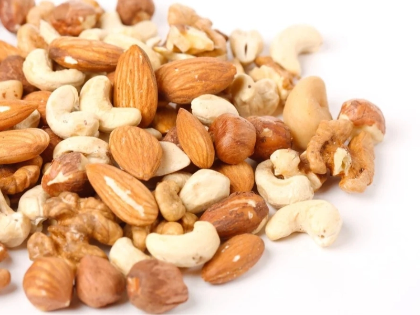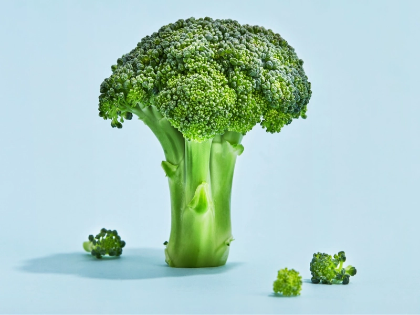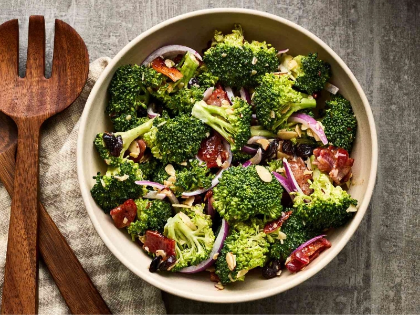Vitamin K for Pregnancy: Supporting Fetal Development
Vitamin K's Crucial Role
An vital vitamin, vitamin K is especially important for blood clotting and bone health among other body processes. The mother as well as the growing fetus need enough vitamin K throughout pregnancy. This nutrient guarantees a good pregnancy by helping the baby's organs and bones to grow correctly. Knowing the value of vitamin K and how it affects fetal development would enable pregnant women to choose their diets with knowledge.
Variations in Vitamin K
Vitamin K comes primarily in two forms: K1, phylloquinone, and K2, menaquinone. Green leafy vegetables are mostly high in vitamin K1; animal proteins and fermented meals contain vitamin K2. Although both forms are vital for health, K1 is especially critical during pregnancy since it helps meet the needs of the mother and fetus. Maintaining a balanced consumption of both kinds will help to provide complete advantages for general health.

Function in Blood Clotting
Vitamin K's main roles are those of a blood clotting agent. This is especially crucial while pregnant as the body changes significantly, raising the bleeding risk. Enough vitamin K helps guarantee effective production of blood clotting agents, therefore lowering the risk of too much bleeding during and following delivery. For the mother's and the newborn's health and safety, this is absolutely vital.
Encouraging Fetal Bone Development
The formation of the fetal skeleton depends on vitamin K in great part. It is crucial for the creation of osteocalcin, a protein that binds calcium to the bone matrix, therefore stimulating robust bone development. During pregnancy, enough vitamin K helps the baby's skeletal system grow healthy, therefore lowering the chance of later in life bone-related problems. Maintaining appropriate amounts of vitamin K will help to create healthy bones for next generations.

Effect on Cardiovascular Welfare
New studies point to vitamin K's possible influence on pregnant cardiovascular health as well. It controls calcium in the arteries, therefore preventing calcification and hence fostering good blood flow. Pregnant women especially should pay great attention to this since their cardiovascular system alters significantly to assist the developing fetus. Maintaining good blood vessels allows Vitamin K to help to ensure a safer pregnancy and better outcomes for mother and child.
Six Sources of Vitamin K
Pregnant women especially should include foods high in vitamin K in their diets. Excellent sources of Vitamin K1 are green, leafy vegetables including kale, spinach, and broccoli. Other sources include several fruits like avocado and kiwi as well as Brussels sprouts and green beans. For Vitamin K2, fermented foods include yogurt, cheese, and natto as well as animal products including egg yolks and liver can be helpful. A well-balanced diet with a range of these items can help guarantee enough consumption of vitamin K.

Daily Recommended Intake
Although the advised daily dosage of Vitamin K during pregnancy varies, generally speaking, pregnant women should eat around 90 micrograms every day. Usually, a well-balanced diet high in fruits and vegetables will help one meet this level. Individual demands, however, could differ depending on food choices and medical disorders. Seeking advice from a healthcare professional will enable expectant women to ascertain their particular vitamin K needs.
Vitamin K Deficiency: Risks
Pregnancy-related vitamin K shortage can cause a number of health problems, including possible consequences for the mother and the child as well as higher bleeding risk. Particularly susceptible to vitamin K insufficiency, newborns may develop a disorder sometimes known as "hemorrhagic disease of the newborn." Not too long after delivery, this disorder might cause major bleeding issues. Maintaining enough vitamin K consumption throughout pregnancy will help to reduce these hazards and support a better baby outcome.

Considerations Regarding Supplements
Although a balanced diet is the best approach to get required nutrients, some pregnant women may need vitamin K supplements, particularly if their dietary restrictions or health issues compromise nutrient absorption. Before beginning any supplements, one should make sure a healthcare professional ensures safety and suitability. They can offer direction on the best strategy to satisfy pregnant Vitamin K needs.
Review of Vitamin K's Function in Pregnancy
Crucially supporting several facets of fetal development, including blood coagulation, bone health, and cardiovascular function, is vitamin K. The health of the mother and the child depends on a balanced diet high in leafy greens and other sources ensuring enough consumption of Vitamin K. Giving vitamin K top priority during pregnancy will help expecting women support the growth of their baby and encourage a safer, better pregnancy. Accepting the advantages of vitamin K can help mother and child both flourish.








